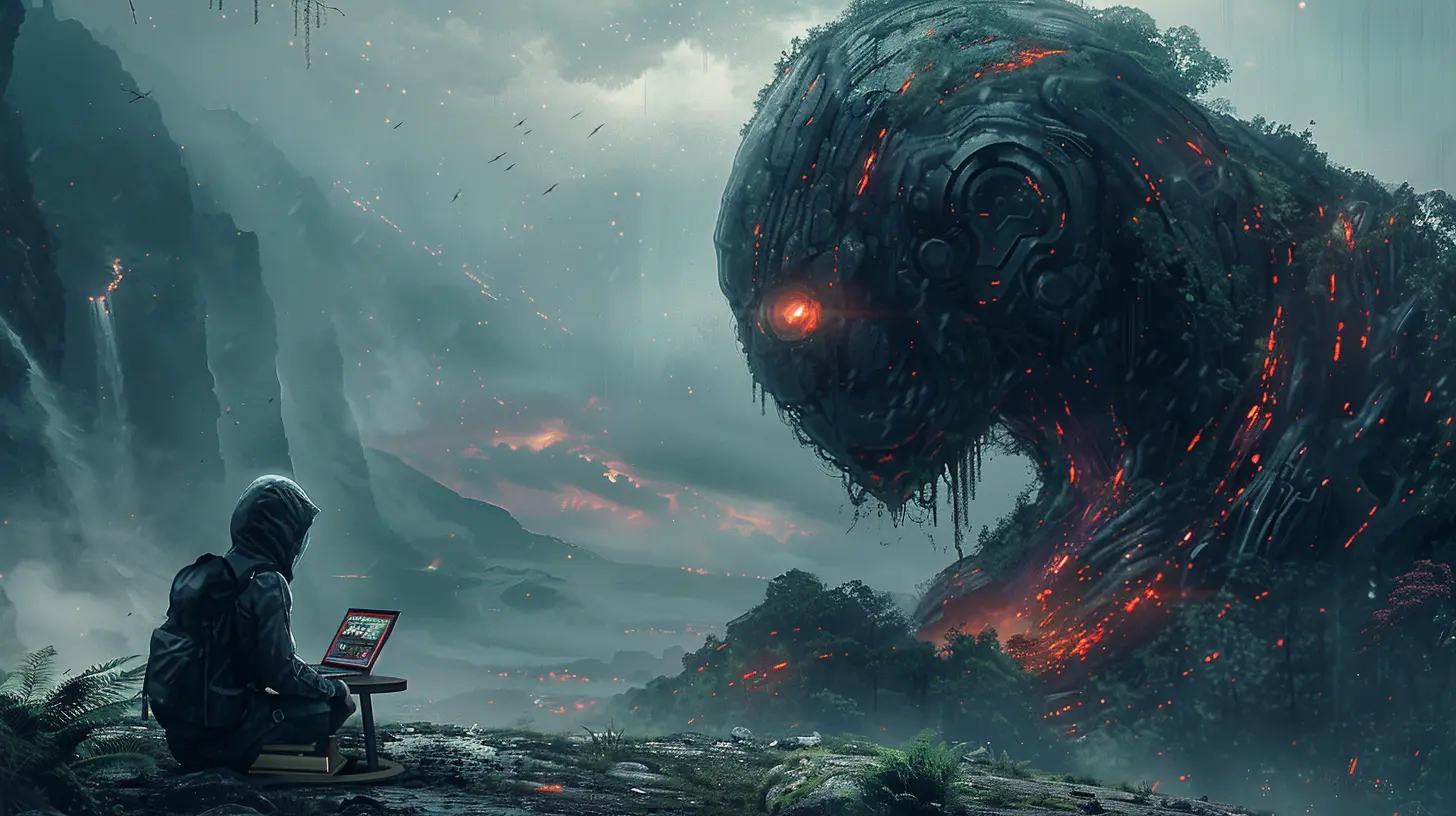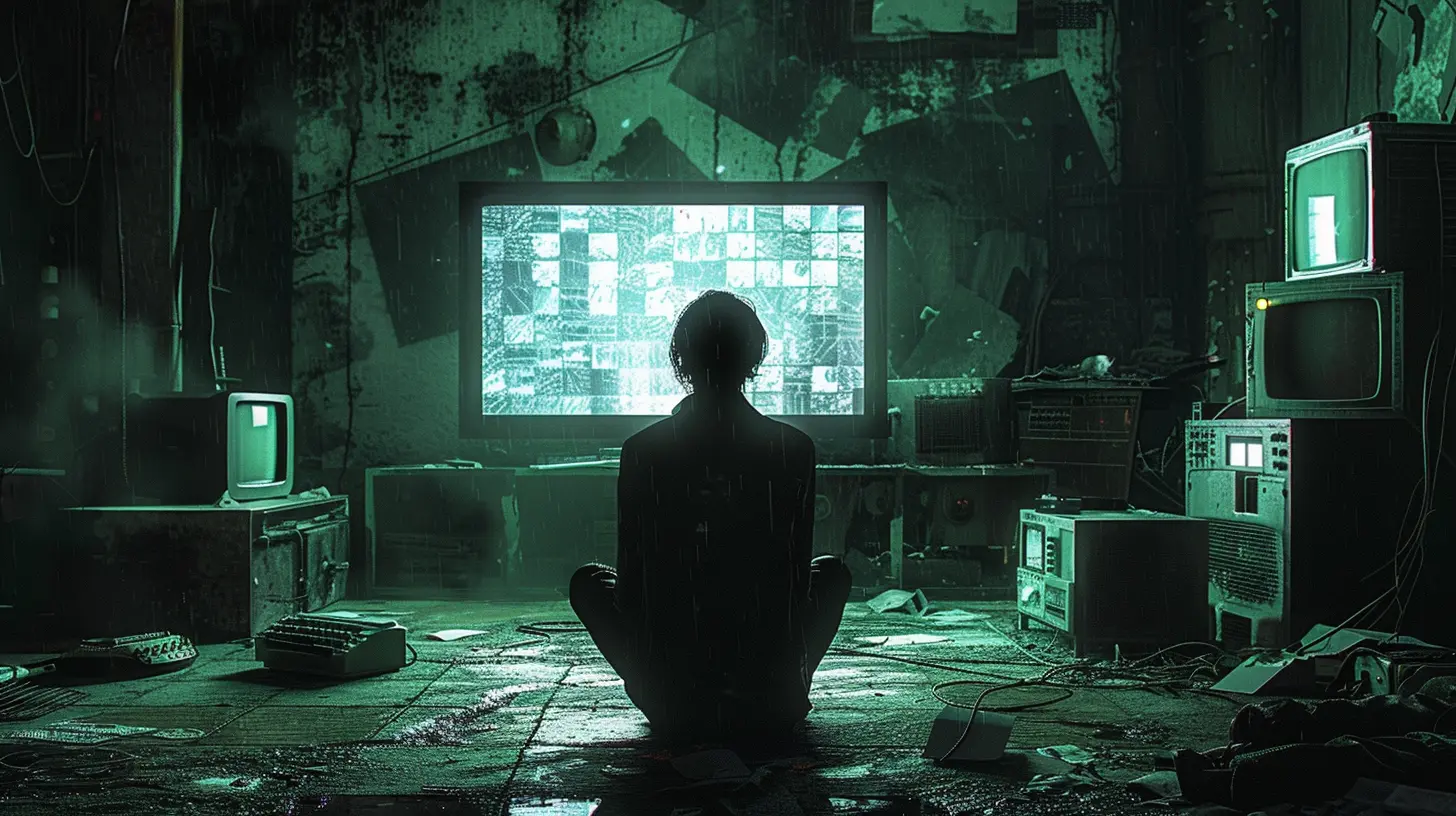Moments You Realized the Game Was Way Smarter Than You
3 August 2025
Let’s be honest. We’ve all had that moment—that humbling, wide-eyed, jaw-on-the-floor revelation where we stop mid-play and think, “Wait a second… did the game just outsmart me?” You know the feeling. One minute you're confidently navigating through a level, and the next, you're staring at the screen, stunned, because the game flipped the rules, read your actions, or pulled the rug from under you. These moments are frustrating, sure, but also kind of magical. They remind us why we love gaming in the first place.
So buckle up, because we're diving into those unforgettable, slightly embarrassing, and absolutely brilliant moments when the game proved it was five steps ahead.

When The Game Predicted Your Every Move
It’s Like the Game Was Reading Your Mind
You’ve been there. You’re sneaking through a stealth mission like a shadow in the night, all ninja-like, convinced you're being clever by avoiding the obvious path. Then, BAM! The AI saw it coming. Guards collapse in on you like they knew you'd be there all along.Games like Metal Gear Solid V or Alien: Isolation do this way too well. The AI actually adapts. Enemies start wearing helmets if you keep going for headshots. The alien starts crawling through air vents because you used them too much. It's not just challenging—it’s creepy-smart.
The “You Thought You Were Clever” Trap
You ever solve a puzzle super fast, thinking, “Ha! Nailed it”? Only for the game to mock you two steps later by revealing that the “quick solution” was actually a trick? Yeah, The Talos Principle and The Witness are straight savages for this. These games test your logic, then flip it upside down. They set traps for your brain because they know your type.
The Illusion of Choice
When You Thought You Were in Control… But Nah
Games love to give us choices. Dialogue trees, moral decisions, different paths. We eat that stuff up! But then... the twist. Turns out, your choices didn’t matter. The game planned everything all along.Take Spec Ops: The Line. You think you’re making the right calls. But eventually, you realize you’ve been manipulated the whole time. It’s not just choice; it’s commentary on choice. It messes with your head.
Same thing with Undertale. The game remembers. Not just what you do now, but what you’ve done across saves. Kill a character in one run, and another might call you out in the next. It’s like, “Chill, game! I was just experimenting!”

Puzzle Games That Made You Feel Like a Potato
When Simple Mechanics Become Brain-Bending Nightmares
The best puzzle games are the ones that make you feel smart for a second… until they don’t.Portal. Need I say more? You enter a room and see a cube, a button, and a portal gun. Seems easy. But suddenly, you’ve been in the same room for 45 minutes questioning your life decisions. It’s not the complexity—it’s how the game tricks you into overthinking. Or underthinking. Or both.
What about Baba Is You? It literally changes the rules of the game—in the game. “Baba Is You”? Cool. But move one word block and suddenly “Baba Is Wall” and you can’t move, and you’re done. It’s like solving a crossword puzzle that keeps editing itself while you’re writing.

Meta Moments That Broke the Fourth Wall
Games That Know They’re Games (And Let You Know It Too)
There’s a special breed of smart game—the meta game. This one doesn’t just play with you; it plays with the very idea of "game."Doki Doki Literature Club. Starts like a cutesy dating sim. Ends with you deleting characters to proceed. It manipulates files on your hard drive. It breaks the game menu. It’s terrifying—it’s genius.
And then there’s Stanley Parable. This game mocks your every move. Try to be smart? The narrator roasts you. Disobey directions? The game rewrites itself. Try to win? Too bad—the game already saw that coming.
These games aren’t just smart. They’re self-aware, like digital mirrors reflecting your every gaming habit.
AI That Actually Learns
When Enemies Stop Being Dumb, And Start Being Dangerous
Okay, let’s say this: we’re used to dumb AI. The bad guys that run into walls? Bless their little pixels. But then you meet enemies who adapt, strategize, and—yikes—even outplay you.In F.E.A.R., the soldiers flank you. They take cover, communicate, and rush you unexpectedly. It’s one of the earliest games where the AI seemed to function like actual teammates—or real enemies.
Then Halo 2 came along with Elites that dodge grenades, coordinate attacks, and retreat when low. Suddenly, you can’t just run and gun. You have to play smart. Or die trying.
Modern games like Middle-earth: Shadow of Mordor ramp it up even more. The Nemesis system literally promotes the enemy who killed you. He remembers you. Taunts you. Learns from past fights. Now that’s a real grudge match.
Games That Mess With Your Emotions
When Gameplay Decisions Hit You Right in the Feels
Some games are smart because they make you feel things you didn’t sign up for. And not in a “this boss is too hard” kind of way—but emotionally.Let’s talk about Life is Strange. You make decisions, thinking you’re helping. But then the consequences hit, and you’re sitting there, controller in hand, like “What have I done?” It’s not just storytelling—it’s manipulation of your empathy.
Same for Red Dead Redemption 2. That ending? You ride through the final mission with music playing, memories flashing, and your choices weighing heavy. The game knows you bonded with these characters. And it uses that against you—in the most beautiful way.
Dynamic Worlds That React to You
When The World Isn’t Just a Backdrop—It’s Alive
Some games don’t just let you play in a world—they make the world respond to you.In Breath of the Wild, everything has logic. Fire spreads. Weather affects your gear. Metal items attract lightning. Physics follows consistent rules. You think you're crafting strategies when really, the game already accounted for your cleverness.
Then take Dishonored. You kill too many people? The city becomes darker, more rats roam, and the ending changes. It's subtle but meaningful. The world—your world—evolves based on you.
Games That Break Their Own Rules... On Purpose
When The Game Suddenly Changes the Game
You think you understand the rules. You’ve been playing for hours. Everything makes sense. Then—plot twist—the game changes everything.NieR:Automata. You think it's over when the credits roll. But nope. New storylines, new perspectives, even different gameplay styles. Suddenly it’s a bullet-hell shooter, a multi-perspective narrative, and a philosophical deep dive all in one. It’s like the game keeps peeling back layers—like an onion wrapped in existential dread.
Dark Souls does this too. You finally start understanding how things work, then you find an area that breaks all those rules. Gravity defies expectations. Traps are everywhere. Bosses ignore your strategies. It’s a cold splash of reality—adapt or get wrecked.
That One Twist You Never Saw Coming
When The Story Punches You In The Gut
Smart games don’t just outplay you mechanically—they outthink you narratively.Remember Bioshock? That “Would you kindly” moment? You thought you had free will? Nope. You were being manipulated the entire time. That twist was so iconic because it recontextualized everything you did up to that point.
Outer Wilds is another gem. You think it’s a quirky space exploration game. Then you realize you’re stuck in a time loop, uncovering the mysteries of an ancient civilization. Every little piece of info matters. The game doesn’t hand-hold. It trusts you’ll make the connections yourself.
Closing Thoughts
At the end of the day, we don’t play games just to win—we play to be challenged, surprised, and sometimes humbled. Those moments when the game proves it’s smarter than you? They're not defeats. They’re triumphs in storytelling, design, and clever programming. They’re what makes gaming magical.And sure, sometimes these moments make us feel like complete fools. But admit it—those are the best ones. Because when a game outsmarts you, you know you’re playing something special.
So next time you get outwitted by a puzzle, tricked by a twist, or played like a fiddle by a virtual enemy... just smile. That means the game did exactly what it was designed to do.
all images in this post were generated using AI tools
Category:
Best Gaming MomentsAuthor:

Aurora Sharpe
Discussion
rate this article
2 comments
Soryn McLaury
This article brilliantly highlights those jaw-dropping moments when game mechanics outsmart players. It’s a reminder of the clever design and depth in gaming, showcasing how challenging and rewarding it can be to think strategically.
January 17, 2026 at 4:15 PM

Aurora Sharpe
Thank you! I'm glad you enjoyed the article and appreciated the cleverness of game design. It's always exciting when a game surprises us like that!
Rosalie McKale
Game logic: 1, Me: 0!
August 16, 2025 at 3:48 AM

Aurora Sharpe
Thanks for sharing! Games can really keep us on our toes!


